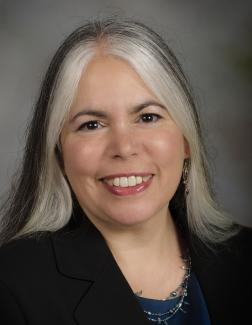NCFR Keeps Active in Current Events
By the time you read this column, the NCFR Board of Directors will have just had its in-person summer meeting. I thought I’d take some space here to write about the ways your board and NCFR staff have been working together to ensure that NCFR remains responsive to issues in the world that affect families. We are the premier member association for family scholars and professionals, and we want to be in the limelight whenever events occur that affect families. We take great pride in the quality of research in our journals and in having an empirical basis for the work that we do. Keeping the research base and the family focus in mind is something we always do when adverse events occur in the United States and throughout the world.
Recently the board surveyed its members on how NCFR should be involved in policy activities. We published two columns in NCFR Report detailing the results of both surveys and the new guidelines for advocacy that were developed by the 1999 NCFR Board of Directors (NCFR Board of Directors, 2016, 2017). We intend to operate from the feedback we got from members and from the advocacy guidelines. There are many ways NCFR can be involved in issues of the day beyond advocating for policy. These include providing resources to family scholars and professionals, generating original research about the issues of the day, disseminating the research that has been produced about families that is relevant to the issues of the day, and providing trainings and resources to members so they can advocate at various levels.
In the past year, NCFR joined the Consortium of Social Science Associations (COSSA), which provided us with access to a network of similar organizations. We connected with COSSA in the past year on a number of issues, including the topic of encouraging research on the effects of gun violence. COSSA enables us to be aware of what other associations are doing in a timely manner—especially important when considering responses to events in the news.
As another policy-related initiative, the board established the Inclusion and Diversity Committee (IDC) in 2011 to advise on issues of diversity within NCFR. In the past year, the board examined the policies and procedures we use with the IDC to ensure clarity about our roles. We rely on the expertise of our members, in the IDC, and in sections.
I have observed among members an increased interest in advocating for social issues that affect families. Maybe I’m noticing this because I am now in a leadership role at NCFR, or perhaps because social and environmental crises seem to be increasingly demanding our attention. As a member organization, NCFR’s Annual Conference includes many activities organized by members that relate to how family professionals might involve themselves in practice and policy when events occur. The more that members consider these issues, the more opportunities they can have to present, develop trainings, and share with other members the information they have gleaned from their experiences. For example, I had the pleasure of attending the Affiliate Council Workshop at the 2017 NCFR Annual Conference (affiliates are local state, regional, or student chapters). At this workshop, Texas affiliate members presented their activities at the state legislature on informing and educating Texas legislators about the value of Family Life Education and the CFLE certification.
Last year’s conference sessions also included “Social Justice Strategies to Address the Elephant in the Classroom or the Family Room: Race and Racism in America, the Conversation Continues,” which was a follow-up from the 2016 NCFR Annual Conference special session sponsored by the IDC. The 2018 NCFR Annual Conference will include an IDC-sponsored panel session tentatively titled “Conversations on Social Justice: How our Social Locations Shape Our Work as Family Professionals.” While I am focusing on events at the national conference, affiliate councils also have conferences. Affiliate councils provide many opportunities to be involved in what affects their regions: a variety of trainings, dissemination opportunities, and other vehicles. I encourage all members who are interested in having an impact to keep track of the activities of affiliate councils.
NCFR staff are responsible for developing resources to aid family professionals such as webinars, research and policy briefs, the online Resource Library, and the articles in the Family Focus section of NCFR Report. With these responsibilities, they have responded to natural disasters and violent events so that the NCFR resources remain fresh and relevant. Given that these products include articles and contributions that are open-called, commissioned, and cite peer-reviewed research, they are of high quality and always involve the expertise of NCFR members. NCFR staff and members who are responsible for these various products are always open to your suggestions about topics and about these products.
Notable events this year in the U.S. have included the #MeToo movement, gun violence in schools, and the repeal of the Deferred Action for Childhood Arrivals (DACA) program. It’s hard to predict what might happen between when I am writing this column and when it comes out in June. Regardless of which new event occurs, the issue of how NCFR involves itself and is a visible resource to family-focused professionals remains of interest to you as members.
References
NCFR Board of Directors. (2016). Results of NCFR member survey addressing research and policy. NCFR Report, 61.3, 1, 10. Retrieved from https://www.ncfr.org/ncfr-report/past-issues/fall-2016/ncfr-board-update-results-ncfr-member-survey-addressing-research-and-polic
NCFR Board of Directors. (2017). Findings of NCFR member public policy survey 2: Moving forward. NCFR Report, 62.3, 1, 18–19. Retrieved from https://www.ncfr.org/ncfr-report/fall-2017/policy-survey-2


